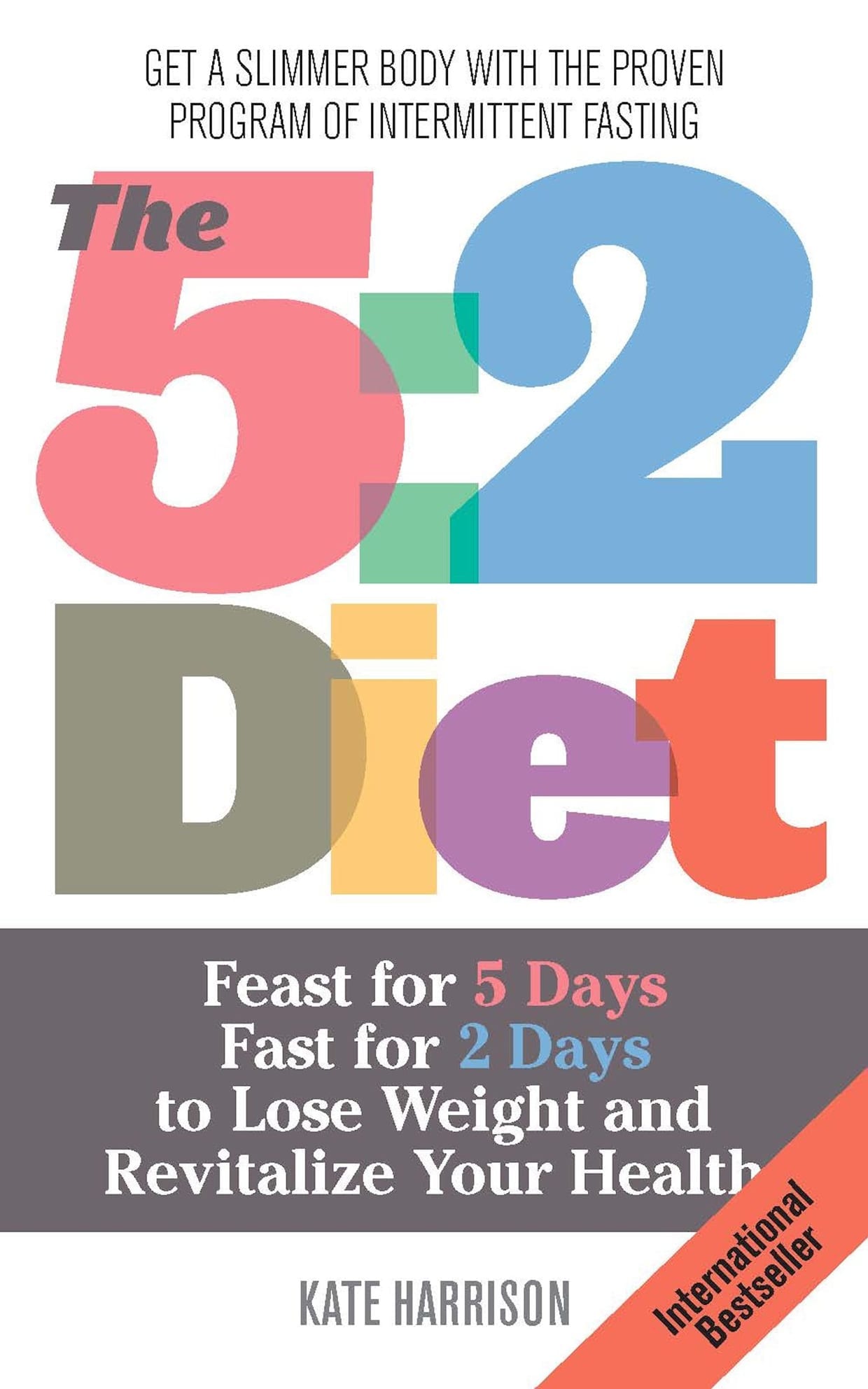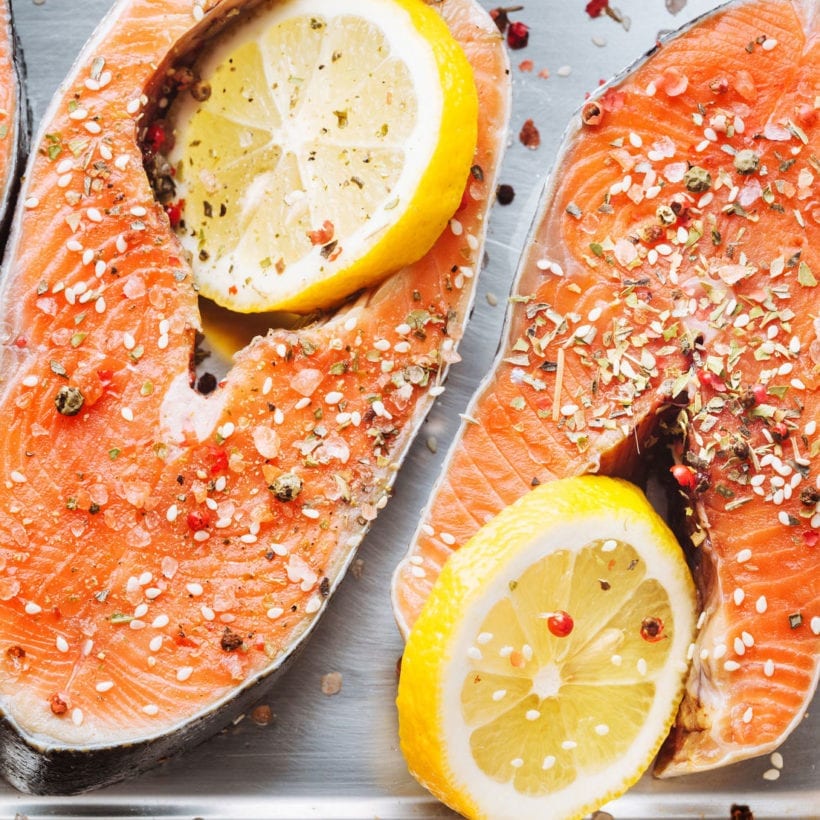Fasting has many connotations, none of which immediately scream health. For the longest time, we have heard that eating smaller, more frequent meals is the way to go, claiming that snacking — as long as it is healthy — staves off hunger, keeps the metabolism humming and controls blood sugar. Plus a gap between meals allows new bugs to clean up the gut wall. But the newer research on the topic suggests that eating fewer than the standard three meals a day may be best in terms of controlling calories and staving off disease, giving traction to a new wave of intermittent fasting: a style of eating at intervals that focuses more on when you eat, rather than what you eat.

Intermittent fasting started generating attention with broadcast journalist Dr. Michael Mosley’s TV documentary “Eat Fast, Live Longer”; journalist Kate Harrison’s book, “The 5:2 Diet”; and Dr. Jason Fung’s 2016 bestseller, “The Obesity Code.” And while fasting is not a new concept — ancient Greeks said it improved cognitive abilities and virtually all major religions (from Christianity to Buddhism and Islam) engage in fasting as a means of spiritual growth and purification — it comes as no surprise that celebrities like Chris Pratt, Kourtney Kardashian and Halle Berry have all jumped on the intermittent fasting train.
As worldwide obesity has nearly tripled since 1975, and the number of adults aged 18 or older who are overweight reached a skyrocketing number of 1.9 billion in 2016, intermittent fasting might be a response to the times but is it a fad like the rest? Perhaps not. “The information on nutrition changes daily, and the one thing that was steady for the majority of mankind is that we fasted, that we didn’t snack, and we didn’t eat a lot,” says Megan Ramos, program director and co-founder of the IDM Program, a coaching program that treats weight and other metabolic related issues, along with Dr. Jason Fung. “For years we ate once a day if we ate at all because we had to hunt and gather and then we had to cook what we hunted before it went bad; it’s only until recently we’ve had things like refrigerators.”
What is Intermittent Fasting?
The most common type of fasting is called the 16/8 fast, which is the easiest type of fasting for weight loss and cognitive function, and it typically involves skipping breakfast and eating lunch and dinner at an earlier, 8-hour window. That being said, research suggests that an even sweeter spot for intermittent fasting is between 18-24 hours. The crux of fasting is achieving low levels of insulin, and this research suggests it is not only that but staying at that low level for longer. At 16 hours, the fast is just getting started and extending it further ramps up the drop in insulin.
Generally, people who do 16/8 fasts do it daily, and some people who start with 16/8 fasts and feel great sometimes do a 24-hour fast once a week or twice a week (regarded as the 5:2 fast), or maybe just once a month. “It really depends on your lifestyle and how you feel, and a lot of people also tailor it around their schedule,” says Christine Bailey, an award-winning nutritional therapist in the United Kingdom. “The best way to do it is stage by stage, so I tell my clients to see if they can stop eating at 7 p.m., then to see if they can go until about 7-9 a.m. the next morning. If they can tolerate that and they feel good, then I say to them, ‘do it again but skip breakfast.’” You might be wondering if breakfast really is the most important meal of the day, but recent studies have found no difference in weight in those people who skip breakfast and those who do not, so it seems like the research on its effect in metabolism is still debated.
https://www.instagram.com/p/BjZh-JelXFS/
Why Does Insulin Matter?
According to Ramos, no “dietary” plan has been able to achieve sustainable weight loss all on its own thanks to its ability to suppress insulin toxicity in the body. Lots of metabolic syndrome conditions such as high blood pressure, high blood sugar, excess body fat and abnormal cholesterol, (which can eventually lead to type 2 diabetes, heart disease, stroke and high blood pressure) are caused by developing insulin resistance in the body. “You develop insulin resistance by eating a certain way, eating at a certain frequency or eating certain foods that cause your body to produce so much insulin that eventually your cells stop responding to it,” says Ramos.
If you have developed insulin resistance for too long, the condition remains and even the most low-carb, ketogenic diet will still cause insulin levels to creep back up, just like the weight. However, when you are fasting, you are not producing insulin at all, other than what your body needs for absolute survival, so your insulin levels are going to be very, very low for extended periods of time. “What that does is sort of suffocating the insulin resistance out of the body, until eventually you sort of kill it,” says Ramos. “You’re changing your set point within the body, and that’s what eventually eliminates the insulin resistance.”
So how does intermittent fasting relate to the old adage of eating smaller, more frequent meals? Bailey says not at all. “What you’re constantly doing is asking insulin to be produced and that’s not great for long-term insulin health and sensitivity,” says Bailey. “It’s also not good at all for your digestive tract, it needs at least 3-4 hours of not having food bombarded into it.”
What Are The Benefits?
Intermittent fasting has been associated with complete type 2 diabetes reversal and long-term cardiovascular health. “It appears to not only improve insulin sensitivities, but it also improves blood glucose, helps lower cholesterol and triglycerides, and reduces inflammatory markers in the body,” says Bailey. “Things like the C-reactive protein [which is caused by a wide variety of conditions like infections or cancer] has also been shown to decline during fasting, which protects from neural inflammation, and therefore Alzheimer’s and even depression.”
If you are going to get the real health benefits of fasting, you have to still eat healthy; it is certainly not an excuse to eat junk.
And while it is not a functional fix for every condition, Ramos has witnessed improvement in autoimmune disorders across the board with conditions like Chron’s disease, hyperthyroidism and polycystic ovary syndrome (PCOS). “We’ve had a bunch of women come to us because they were infertile from their PCOS and we were able to reverse it, we’ve taken many people off blood pressure medication, and many patients also came off their Adderall or Ritalin because they finally felt like their mental fog was lifted and they are able to function without it.”
Additionally, fasting induces a state of autophagy, which is a physiological detox process the body undergoes to clean out damaged cells and regenerate new ones, a cellular “spring cleaning,” if you will. (Yoshinori Ohsumi won a Nobel Prize in 2016 for its discovery.) A common way biochemists define aging is, “the accumulation of dysfunctional proteins and organelles in our cells.” Therefore, many people also fast as an anti-aging strategy, forcing their cells to clean house.
Forget the juice cleanse, there are a few ways to activate autophagy: intense exercise, a heavy degree of ketosis, restorative sleep and — you guessed it — intermittent fasting. “With fasting, it’s easier to get into that state of autophagy and stay there longer,” says Ramos. “You can’t exercise for 36 hours, but you can fast for 36 hours.” Which begs the question, do you have to fast for that long to activate autophagy? The answer is yes and no. Since nutrient deprivation is its key activator, there is significant research that suggests that autophagy kicks in at around 12-16 hours of a fast, peaks there and then drops after two days. So, if you are fasting for cellular “spring cleaning,” intermittent fasting may be even more effective because you spend more time on the early peak stage of autophagy. However, from 16-36 hours of a fast, you get maximum autophagy and maximum growth hormones, which is known to kick in at about 13 hours of a fast and has a big role in slowing down the aging process and helping the body burn fat.
How Can You Start Intermittent Fasting?
According to Ramos, step one is to always cut out snacks and go back to eating proper meals. The second step is to try to move your dinner window up a little bit. Eating earlier also induces better sleep, reduces heartburn and indigestion and helps with weight control in and of itself. “Once people get into the habit of eating regular meals and trying not to eat so late at night, then we start talking about cutting out breakfast.” If you are going to get the real health benefits of fasting, you have to still eat healthy; it is certainly not an excuse to eat junk. “You can eat good fat that is anti-inflammatory [like olive oil, fatty fish and nuts], or you can eat bad fat like peanut oil [it’s high in omega-6 fatty acids, which are more pro-inflammatory] and think that’s good when it’s not,” says Ramos. “At the end of the day, I encourage my patients to eat real foods and eat foods that don’t produce a lot of inflammation. It makes a difference across the board, regardless of what their diet is — whether they’re paleo or ketogenic, fasting gets the same results in everybody.”

Are You A Good Candidate?
Intermittent fasting certainly is not for everyone. It is never recommended for children, pregnant women, women who are breastfeeding, people who are underweight or have an unhealthy relationship with weight loss and food. “I also wouldn’t recommend it to someone that’s been diagnosed with adrenal fatigue because if your adrenal glands aren’t working well, they will not be able to keep your blood sugar stable,” says Bailey. However, — and perhaps surprisingly — it is perfectly fine for people who exercise regularly. Some of the benefits of exercising in a fasted state include boosted growth hormone production, improved body composition, and an increase in oxidative stress — which benefits the muscle machinery — all while preserving your muscle mass. “In the primary state of fasting, the body will burn fat, which is great to improve your body composition,” says Bailey. “However, I work with a lot of professional athletes, and they will never go beyond 16 hours of fasting because they not only want to preserve muscle mass, they want to improve it. So, we normally say to do a 16/8 fast, exercise in a fasted state that will improve fat burn, but make sure the night before they had a meal high in protein.”
What Is The Bottom Line?
According to Ramos, there’s no actual science that suggests we must eat three times a day, let alone more. (Modern dietary guidelines are created solely by government organizations: the U.S. Department of Agriculture.)“One of the most enlightening conversations I had was with my grandmother who was in her 70s, and she said, ‘Honey, I think you’re right because when we only ate three meals a day and we didn’t snack, we weren’t fat! I was never fat until my 40s. It was when we started being able to afford the potato chips and premade cookies.’ I think it’s good to go back and reflect on human history and see what we did that worked, and what we did that didn’t work,” says Ramos. “And what we’ve done since the late ’70s — the TV dinners, the incessant snacking, the low-fat diets — hasn’t worked.”







